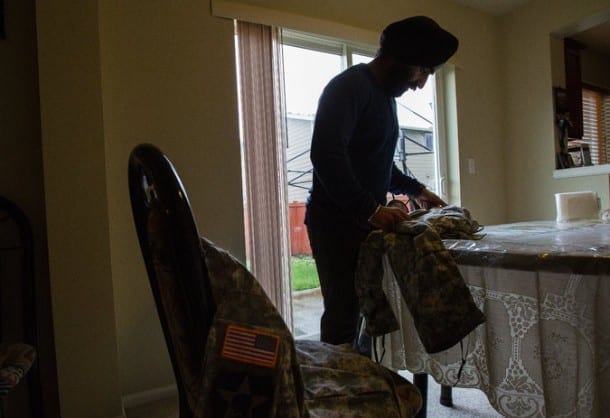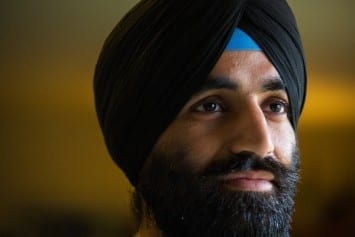


U.S.A—On his first day at the United States Military Academy at West Point, Simratpal Singh sat in a barber chair where new cadets get their hair buzzed short, forced to choose between showing his faith and living it.
Cadet Singh had grown up a Sikh. As part of his faith, he had never cut his hair or beard. But his faith also encouraged protection of the oppressed, which inspired him to join the Army.
The Army would not allow a soldier with long hair or a beard, so that day he watched his locks drop to the floor.
“Your self-image, what you believe in, is cut away,” he said in an interview. For a long time after, he would shave without looking in the mirror.
Last week, the Army finally granted now Captain Singh, 27, a religious accommodation that allows him to grow his beard and wrap his hair in a turban.
“It is wonderful. I had been living a double life, wearing a turban only at home,” he said. “My two worlds have finally come back together.”



It is the first time in decades that the military has granted a religious accommodation for a beard to an active-duty combat soldier — a move that observers say could open the door for Muslims and other troops seeking to display their faith. But it is only temporary, lasting for a month while the Army decides whether to give permanent status to Captain Singh’s exception.
If it decides not to, the captain could be confronted with the decision of whether to cut his hair or leave the Army. He has said he is prepared to sue if the accommodation is not made permanent.
“This is a precedent-setting case,” said Eric Baxter, senior counsel at the Becket Fund, a nonprofit public interest law firm that specializes in religious liberty. “A beard is a beard is a beard. If you let one religious individual grow it, you will need to do it for all religions.”
The Army does not comment on individual personnel decisions, said Lt. Col. Jennifer R. Johnson, a spokeswoman. She added that future requests for accommodations would be evaluated “on a case-by-case basis, considering the impact on unit and individual readiness, unit cohesion, morale, discipline, and health and safety of the force.”
For years, the Army has argued that beards in the ranks — religious or not — threatened the very foundations of military order and discipline.
The United States military has become increasingly inclusive, allowing gay men and lesbians to serve openly, and women to serve in combat roles. But it has held a stiff line on uniforms and grooming standards. Though over the centuries these standards have included powdered wigs and Civil War mutton chops, in recent decades the military has insisted on men being clean-shaven with hair shorn high and tight.
Resistance to departures from uniformity is so strong that while official standards allow for toupees, it took a Supreme Court case and an act of Congress in the 1980s to clear the way for skullcaps.
In recent years, almost all requests for a religious accommodation for a beard have been dismissed. In a 2014 letter denying a beard to a Sikh student at Hofstra University who had tried to join the Army’s Reserve Officers’ Training Corps, Lt. Gen. James C. McConville, the officer in charge of all such accommodations, said beards under gas masks posed a safety hazard. The general added that any break from uniformity could erode esprit de corps and “damage the esteem and credibility” of the entire officer corps.
However, during the wars in Iraq and Afghanistan Special Operations soldiers have had lax facial-hair regulations, and having a beard has even become a mark of elite soldiers.
This summer, a United States District Court judge rejected the safety argument, noting that more than 100,000 troops have been allowed to grow beards for medical reasons such as acne and sensitive skin. The judge ruled the Army’s denial was illegal. But the decision applied only to students enrolling in R.O.T.C., leaving the larger question of beards for active-duty troops untouched.




